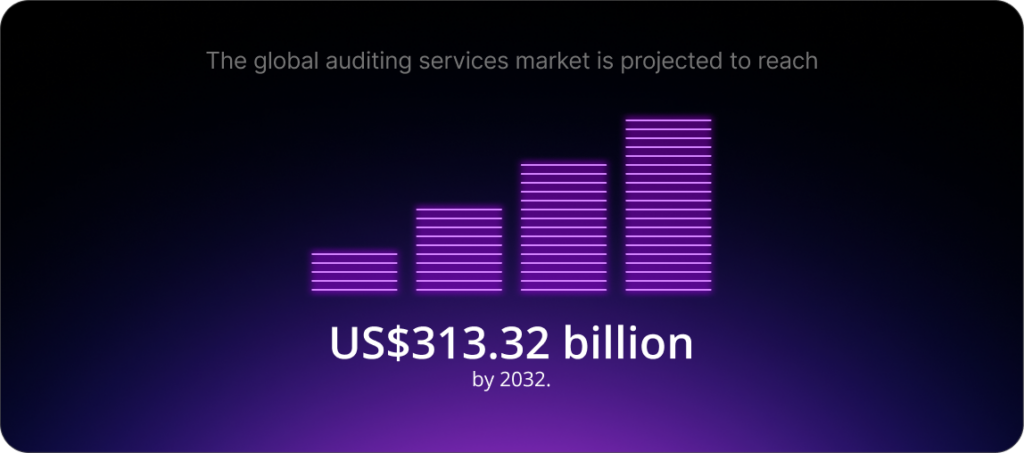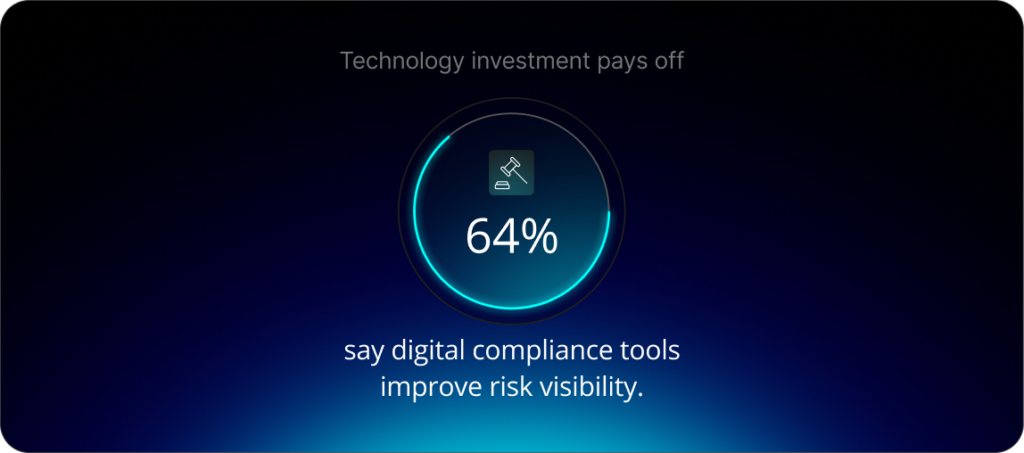The speed imperative
The asset finance sector faces unprecedented pressure for rapid auditing responses due to rising credit risks and market volatility. Americans are missing car payments at the highest rate in decades, with 6.6% of subprime auto loans over 60 days delinquent as of January 2025. Repossessions surged to an estimated 1.73 million vehicles in the U.S. during 2024, creating urgent demand for rapid audit and compliance capabilities.
Traditional auditing approaches are fundamentally misaligned with today’s market velocity. While financial institutions require real-time insights to manage rapidly evolving risk profiles, conventional audit cycles stretch across weeks or months, creating dangerous blind spots. The global auditing services market, valued at $227.18 billion in 2024, is projected to reach $313.32 billion by 2032, driven largely by demand for faster, more responsive audit solutions.
The consequences of delayed auditing have escalated dramatically. In scenarios where borrowers default, traditional auditing that requires a week to complete could result in asset relocation, deterioration, or concealment, while digital audit capabilities enable verification within hours.

Hybrid auditing: The best of both worlds
Hybrid auditing represents a fundamental shift from a one-size-fits-all approach to intelligent risk-based allocation. This framework matches audit methodology to specific risk profiles and operational requirements, combining digital tool efficiency with human expertise discernment.
The hybrid model strategically allocates resources: routine, low-risk, or low-volume audits are handled in a digital-first manner by using platforms that enable remote asset verification through timestamped photos, geolocation data, and automated cross-referencing. Meanwhile, high-risk, high-value, or complex cases receive manual, expert-led attention where professional judgment proves essential.
A recent article by the Boston Consulting Group noted that companies labelled as AI leaders are expected to generate a 45% or greater reduction in costs and 60% or greater growth in revenue than other firms by 2027. Dynamic cost management emerges naturally, with companies typically saving 50%on audit costs while maintaining quality through strategic resource allocation.
Operational flexibility represents another critical advantage. During the pandemic, many financial institutions performed audits digitally when travel was restricted, continuing governance schedules without increasing risk. This approach reduced operational costs and allowed more frequent audits, providing better real-time visibility into asset portfolios.
Overcoming digital skepticism
Current technology addresses accuracy, security, and oversight concerns while delivering superior performance compared to traditional methods. Modern audit technologies incorporate tamper-proof audit trails that exceed traditional paper-based documentation standards, with blockchain-based verification systems ensuring data integrity throughout the audit process.
AI-powered audit tools reduce error rates by up to 5%, addressing accuracy concerns through automated verification and tamper-proof trails. Rather than removing human oversight, digital tools enhance it through rules engines and AI that perform first-pass verification, allowing auditors to focus on exceptions and complex issues.
Compliance and audit standards are evolving to embrace digital touchpoints. Technology investment is widely seen as improving compliance activities, with a 2025 global survey by PwC finding that 64% of respondents report better risk visibility and 53% experience faster identification and response to compliance issues. Security and reliability have become hallmarks of well-designed digital audit processes rather than barriers.

Market reality: Hybrid goes mainstream
The shift toward hybrid auditing reflects broader market pressures driving operational transformation across financial services. Cost optimization pressure has intensified as audit fees rose by 9.5% in 2024 due to enhanced regulatory requirements and talent shortages.
For example, one British vehicle financing company established a digitally driven wholesale division and sought to implement an automated auditing system throughout its dealer network. The organization faced significant challenges with its traditional physical audit process, particularly around timely issue identification and resolution. The manual approach proved problematic due to subjective interpretations that varied across different audit scenarios.
The company introduced a digital auditing platform five years ago, at the peak of the COVID-19 pandemic, enabling uninterrupted audit operations during nationwide lockdowns when all assessments were conducted remotely. A recent SBS study showcased that with the support of SFP Digital Audit, the company implemented a sophisticated hybrid model where digital audits account for 70% of all assessments, allowing for increased audit frequency while leveraging specialized physical auditors for the remaining 30% of cases requiring on-site expertise.
The report added that this strategic transformation delivered substantial operational benefits. The organization has achieved a 50% reduction in audit costs by eliminating travel expenses and other physical audit overheads. Additionally, real-time data processing and automated alert systems have generated time savings exceeding 40%. The shift to digital-first auditing has also substantially decreased the company’s carbon footprint, supporting compliance with environmental regulations and sustainability commitments.
Implementation Strategy
Successful hybrid auditing implementation requires strategic planning and cultural transformation:
- Start with routine wins by digitizing standard collateral verifications, basic compliance checks, and regular portfolio reviews where patterns are well-established and exceptions are rare.
- Define clear escalation triggers with specific criteria for when audits should escalate from digital to manual processes, including high asset values, repeat discrepancies, unusual transaction patterns, or certain risk flags.
- Train for blended workflows by equipping audit staff with comprehensive training on digital tools while updating procedures to integrate remote and on-site workflows.
- Emphasize change management as shifting to hybrid represents as much a cultural transformation as a technological one, requiring clear communication of benefits and comprehensive support for adapting workflows.
- Integrate platforms and visibility using unified platforms to manage both digital and manual audits. Firms using integrated platforms report fewer workflow errors by managing all audits in one system.
The competitive edge
Hybrid auditing creates sustainable competitive advantages beyond operational improvements. Organizations implementing comprehensive hybrid frameworks gain adaptive risk management capabilities essential in volatile market conditions.
Key competitive advantages include:
- Speed and responsiveness that translate directly into improved asset recovery rates, reduced operational risk, and enhanced customer satisfaction
- Cost optimization maintaining audit quality while reducing overall expenses
- Compliance readiness improved through comprehensive documentation and real-time monitoring capabilities
- Operational resilience ensuring continuous asset oversight through disruptions
The broader impact extends beyond efficiency gains to create fundamental competitive differentiation, enabling proactive rather than reactive risk management, continuous monitoring rather than periodic assessments, and data-driven rather than intuition-based decision making.
Conclusion
The competitive imperative is clear: the question is no longer whether to embrace hybrid auditing but how quickly organizations can implement these capabilities effectively. Organizations that delay hybrid adoption risk falling behind competitors who recognize that hybrid auditing represents the future of risk management in asset finance.
Whether your audit processes are manual or automated in 2025, partnering with an industry-leading digital solutions provider can transform your operational efficiency and risk management capabilities. SFP Digital Audit has empowered asset finance organizations globally to revolutionize their audit operations by adopting intelligent, cloud-based digital auditing solutions that deliver enhanced accuracy, real-time insights, and seamless scalability. Learn more about how you can streamline your auditing processes by clicking here.